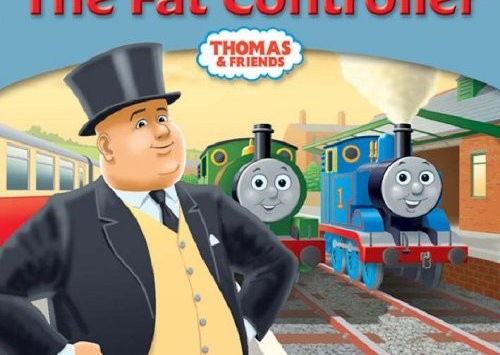
Where is the ‘Fat Controller’?
Yesterday Marius Kloppers was reported in the Oz as saying “the record prices we experienced over the past decade, driven by the ‘demand shock’, will not be there to support returns over the next 10 years”
Additionally he revealed that the mining industry collectively has not learned anything from past booms and busts when he explained that to meet the rising demand mining companies had yet again taken a “volume over cost” approach, adding “improving productivity played second fiddle to speed to market for many in the industry”.
While we can give ourselves a little ‘we-said-it-here-first’ pat on the back for spotting the coming slump in iron ore prices a year ago and protecting our investors from it, the bigger picture is more important; Where is the industry’s equivalent of the Thomas the Tank character – the Fat Controller? Why is there no ‘OPEC’ for iron ore and coal producers? Would it help if there was?
The lessons of each boom/bust cycle are lost with each generation’s death and the mistakes repeated again. Only those who study history can hope to beat this cycle because caught in its spotlight are prone to declare this time is different.
An argument we heard this time was “it can’t fall below $100/t because China’s cost of production is higher”. Yet anyone with more than a few minutes experience in commodity markets can tell you that just about every commodity has traded below its cost of production and sometimes for many years.
While we believe we are able to spot these cycles developing, we must ask the question, what will be put in place to ensure that next time billions are again not wasted? Or is this the ugly wart on capitalism’s nose that cannot be removed?
Marius Kloppers might arguably be the worst offender in his role as head of BHP, He was of to spend his 60 billion on 3 main projects, but was only stoped at the 11th hour by the directors. Now he has seen the cliff he almost ran off he is out to tell everyone how smart he is by slowing down the expansion plans. Bhpbio started far too late on the iron ore expansion and payed a very high cost ( about 13 billion ) for a very ordinary export increase ( 40 million t ). At the same time their cost per tonne has blown out ( $41 compared to Rio Tinto at $37).
No, capitalism is working fine, it is better to have some ion ore miners go broke or get bought out, than to have an over inflated ion ore price, that leads to over priced steel, which causes pain all over the world, in all sorts of industries.
In the last industry I was in ( the wool industry), we had an ” OPEC ” try and have a min price for wool, it failed leaving 25 years of pain for the industry. It’s best to always let the free market sort it self out. The leanest, best run companies will do the best long term.
If only America had alowed capitalism to run its course and not “save” sertain companies, the pain would have been much deeper, but the improvement would have been quicker.
Thanks for reading, cheers Gary
Why is there no ‘OPEC’ for iron ore and coal producers? Would it help if there was?
OPEC is a cartel and cartels are not good for society as whole it is good for individuals in charge of that cartel.
that is same with FED or RBA.
Or is this the ugly wart on capitalism’s nose that cannot be removed?
system that we live in does not have anything to do with capitalism.
maybe is closer to socialism or fascism, and definitely is welfare state and in US is warfare as well.
thanks ned.
Indeed! Hence the question; “Would it help if there was?”
I think the “prisoners dilemma” would come into effect.
If Andrew Forrest and Marius Kloppers sat down in the room amongst others as part of a cartel inflating the price of iron ore, i just can’t see them co-operating.
My option is to stay out of commodity style businesses altogether. I like companies with pricing power.
Hi Roger,
As the old saying goes. “The only thing we learn from history is that we never learn from history”
Regards
Terry Cleal
“This time it’s different though”.
I agree with you Terry, it is amazing how often a simple look to the past will show us what we can expect from the future.